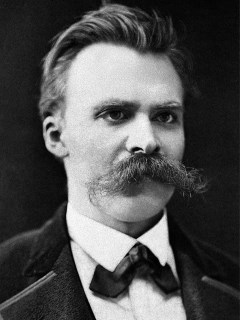

How epistemology becomes what it is
pp. 141-149
in: Babette Babich (ed), Nietzsche, epistemology, and philosophy of science II, Berlin, Springer, 1999Abstract
For Nietzsche, philosophy is an intensification of fields of thought. Showing what it means to say this, and what it is for philosophical work to be an expression, in part, of this idea ("philosophy is an intensification of fields of thought") are two main aims of what follows. Each of the elements in the idea is complex — is itself an idea — and is so in large part because it is articulated in a complex way with the others (as with an aphorism). The way forward is through explorations of genealogy (involving a very brief assessment of some interpretations of Foucault and Deleuze) and of Nietzschean critique, and in the process an account will emerge of the relation of his thinking to the domains of epistemology and the philosophy of science.





